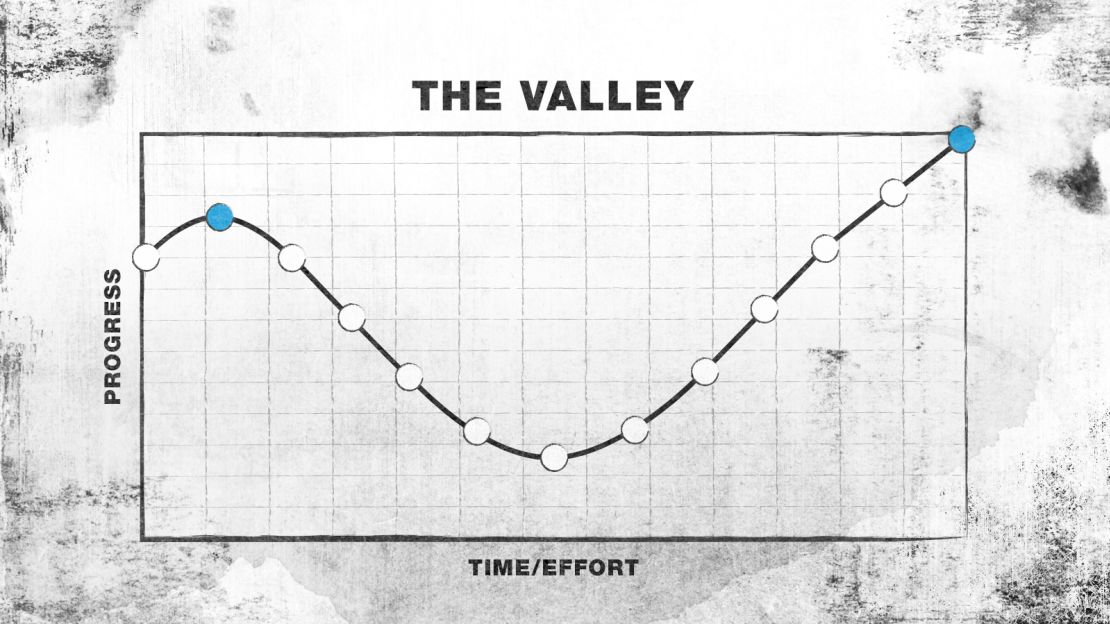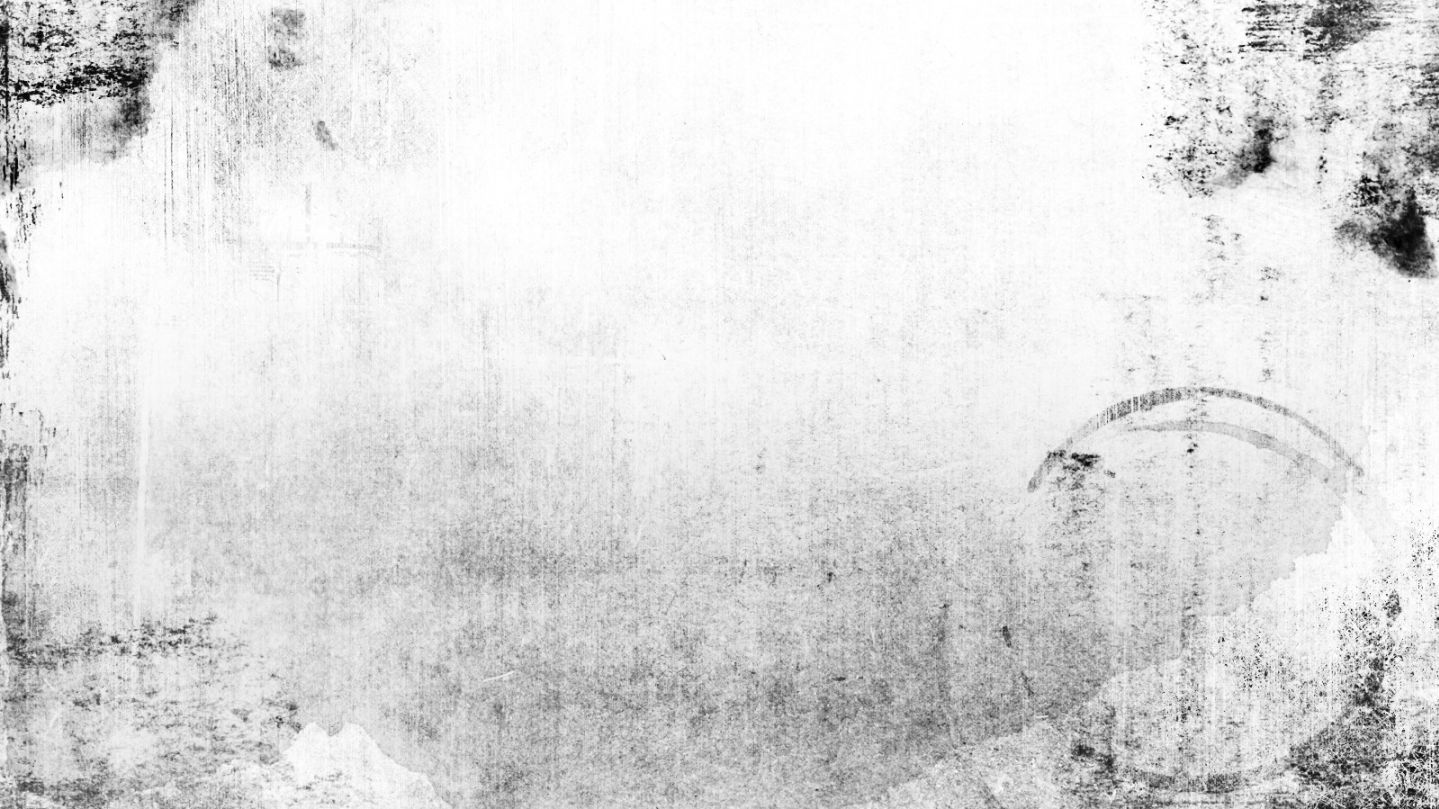Editor’s Note: This essay is part of a column called The Wisdom Project by David Allan, editorial director of CNN Health and Wellness. The series is on applying to one’s life the wisdom and philosophy found everywhere, from ancient texts to pop culture. You can follow David at @davidgallan. Don’t miss another Wisdom Project column; subscribe here.
Story highlights
Our primitive brains translate risk into danger; to survive, avoid it
Transition can drag up deep, hidden fears we don't face in periods of stability
In the 1989 James Cameron film “The Abyss,” an underwater crew is faced with a dangerous rescue operation in a deep-sea trench.
At those depths, the pressure is so great that the Navy invents a (fictional, for the film) diving suit filled with oxygenated water that relieves the pressure but requires breathing water through the lungs.
To demonstrate how it works, a Navy SEAL submerges a rat into a small container of the oxygenated water. The rat thrashes frantically (thinking it is drowning) but soon is able to swallow the water and get the oxygen it needs to survive.
“She’s diggin’ it,” the Navy SEAL says.
“She’s doin’ it, she ain’t diggin’ it,” replies the rat’s owner, insisting his pet be freed.
When I began a new job six months ago, I was that rat.
Like many people at new jobs, I had to quickly learn the ropes while facing big challenges right away. In fact, I was hired to be an agent of change, so I needed to learn and reinvent at the same time. The stakes were even higher because I was moving my family to a new city for the job. I’m still working on those compounded challenges, as well as the more recent geographic transition, but after six months, I’m not drowning. I may not always be diggin’ it, but I’m doin’ it.
I have a personal pioneering history of upping stakes in search of something better, so I was surprised at how poorly I coped at the beginning of this change. I was chronically losing sleep, had spikes of panicky doubt, and even some regret when I thought about the job I just left (which I did often). This time, I was bringing my family with me into uncharted territory. Big moments of transition like these have a way of dragging up deep, hidden fears we don’t face in our longer periods of stability.
What doesn’t kill you makes you stronger (unless it kills you)
Change is risk. Our primitive brains translate risk into danger, and our survival as a species depends on avoiding it. “That which does not kill us, makes us stronger,” philosopher Friedrich Nietzsche famously said, and then was repeated by everyone from “Conan the Barbarian” to Clairee Belcher (Olympia Dukakis) in “Steel Magnolias” and as the entire plot of “The Natural.” But the risk that it could kill you (or at least threaten you) can easily trigger anxiety. Our brains do the heavy math during times of big change in order to figure out whether that transition leaves us better or worse off. It’s the calculus that helps us decide whether we are thriving or failing.
New job. New kid. New city. Sickness. Break up. Divorce. Lay off. Bankruptcy. Death of a loved one. New career challenge. These are big changes we all face at some point, and we can’t fully prepare for them. But we need to thrive despite them, and that means finding the coping mechanisms, wisdom and fortitude that helps us make the transition.
Coping: Mentors, mantras and meditation
The first thing I did when I doubted myself and my decision to take a new job and move to a new city was talk to people who know and care about me – my wife, family and friends. They helped, but I also needed an expert on my career, so I reached out to my old boss. He met me at a diner after work and gave me so much good advice that I wrote it down and referred to it often in those early weeks.
“The big picture is fine,” he said, meaning my career trajectory, “but the short term is murky. Murky isn’t bad, it’s just not clear.” That became my first mantra. He also told me to find people at my new job who could relate to the issues I was having, which I did. And by seeking those folks out, I started a community where I knew nearly no one.
He also told me “to be open to the possibility that things will get better,” because if you can’t do that, you become your own worst enemy.
And he reminded me to take my own advice from past columns – meditate at work, remember that the way forward is rarely straight. In fact, the learning curve of a new job looks like the roller coaster I was riding.

So blinded was I by change-induced anxiety that I had lost sight of my own advice. So, I started meditating in the office, even just one-minute breathing exercises to re-center me. I reminded myself of the advice people gave me that offered me perspective. And framing difficult situations helps too.
Fortune favors the bold
Simply thinking about past challenges in which you came out on top – or at the very least unscathed – is a reminder that you will do so this time as well. There’s also that old linguistic chestnut that the Chinese word for “crises” is also “opportunity.” (It’s true, by the way.) Sometimes our greatest difficulties become our greatest moments of triumph.
Change, while requiring adjustment – sometimes painful adjustment – often finds its way back to equilibrium. Transition and struggle are usually the only ways to get to someplace better. That’s how species, and individuals, evolve. Hardships make you wiser and more empathic. And nothing is more self-empowering than metaphorically sailing oceans, climbing mountains and crossing deserts.
Change also never goes away. Ironically, it’s one of the few things in life you can count on. So the sooner you discover what helps you adjust, re-calibrate and thrive during change, the easier it will be to bag the next peak.
Learn new skills. Find the mentors and friends who will listen and may have advice. Look for metaphors (oxygenated water, roller coasters) that help you frame the experience. Find a good mantra: “It’s ‘murky,’ ” “I’ve dealt with worse,” “This too shall pass.” Even just a good song that articulates what you’re going through helps. My daughter and I share an affection for Katy Perry’s “Roar,” which was useful for this time.
The faster you can bounce back, the better. But you’re also learning for next time. And there will always be a next time.






